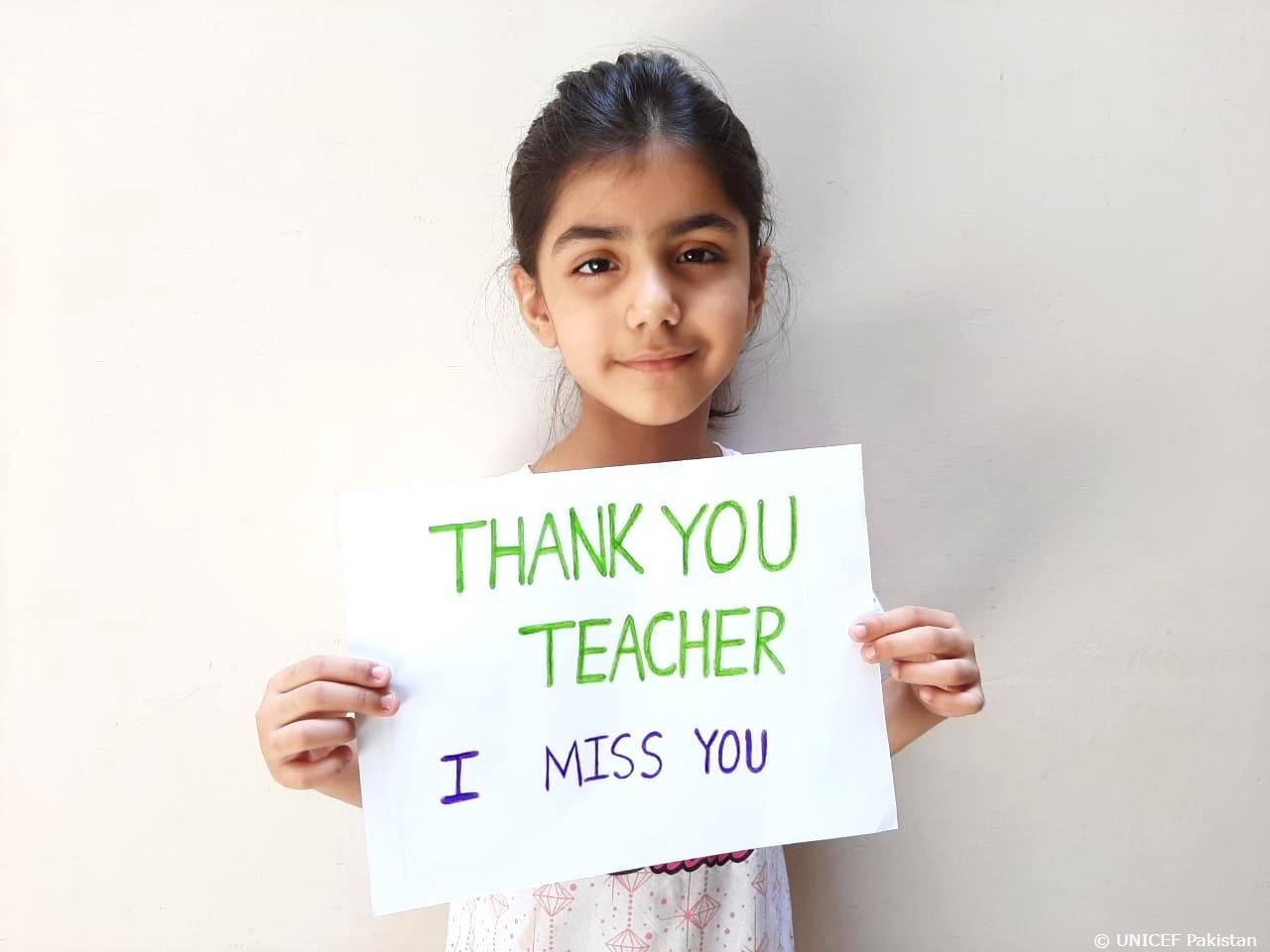As a majority of students in Vietnam are set to return to school to begin the new academic year, UNICEF is calling on parents and students to share on social media special ‘thank you’ notes to their teachers in recognition of the crucial role that teachers have played in the last months to keep children learning while schools were closed during the COVID-19 pandemic.
“This call to action is built on the simple but powerful phrase ‘thank you’ – a positive, unifying sentiment that can bring people together in the face of a crisis,” Rana Flowers, UNICEF representative in Vietnam, was quoted in a press release as saying.
“It’s a chance to unite parents and students around Vietnam behind an uplifting conversation on the need to keep children learning,” she added.
UNICEF asks parents to photograph their children or people holding a decorated sign saying 'Dear teacher, thank you for ...’ and share the photo with the child's or person’s name, age and quote about what they love or miss about their school or teacher.
“By launching the ‘thank you teacher’ campaign, we want to celebrate teachers who have shown persistence and creativity in the face of enormous challenges, who believe in the right of every child to learn,” Flowers said.
“Building on the work of those passionate teachers, it’s important to invest in education to bridge the digital divide, reach every child with remote learning, and, most critically, prioritize the safe reopening of schools,” she added.
While many lessons have been learned and many challenges identified, there were also numerous teachers across the country who recognized that their students could not get online and who went to extraordinary lengths to get notes and worksheets to their students.
“Our hope is that these teachers will be among those who are sincerely thanked,” Flowers said.
In Vietnam, since early February, the learning of 21.2 million school children has been affected by school closures as parents and caregivers struggled with finding alternative childcare and learning support arrangements, according to UNICEF.
While online learning was rolled-out, the crisis exposed a significant digital divide – between those with access to both a device and internet and those without.
Although schools reopened in April 2020 after the first wave of COVID-19, it remains uncertain how the pandemic will impact the next school year.
As children prepare to return to schools in September, digital and online learning is recommended as a solution for keeping children learning in pandemic or emergency situations.
“Beyond this, however, online lessons offer a wonderful opportunity to reimagine education. introducing problem-based methodologies, encouraging group work sessions, [and] helping teachers learn how to introduce and practice the skills that employers are pleading for,” said Flowers.
The COVID-19 pandemic and the impact on Vietnam’s education system has created a renewed sense of urgency to adapt the education system to prolonged periods of distance learning and to enable all students to benefit equally.
Continuing its work on digital literacy, UNICEF Vietnam is working with the Ministry of Education and Training to enhance distance teaching capacities of teachers and schools and working with the private sector and other partners to create an enabling and inclusive distance learning environment that ensures no child is left behind as education draws increasingly on online tools and assets.
The pandemic has also opened opportunities to strengthen digital and virtual engagement of adolescents and young people.
UNICEF, or the United Nations Children's Fund, works to reach the world’s most disadvantaged children in more than 190 countries and territories.
Like us on Facebook or follow us on Twitter to get the latest news about Vietnam!

















































